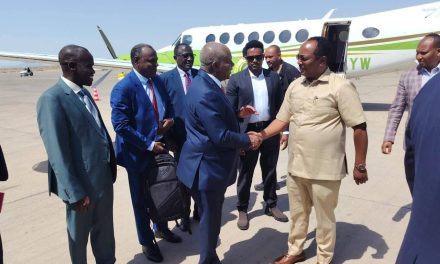
Only Hybrid Court Can Scare Criminals in South Sudan: Advocate
By Awan Achiek
South Sudanese criminals won’t be deterred from their acts without the establishment of a hybrid court, an advocate said.
The formation of the court is spelled for in the peace deal reached between the government and opposition groups in 2018.
Its formation was meant to ensure accountability for crimes committed during a crisis which began in December 2013, pitting the current First Vice President Dr Riek Machar in a rebellion against President Salva Kiir’s administration.
The crisis led to the loss of lives of 400,000 people, displacing four million others and sent the economy in a downward spiral by slashing crude oil production, the main revenue source.
Kiir and Machar are again back leading the country in a three-year transitional period.
Advocate Steve Isaac Kwai said it is time the leaders started trying the people, including top army officials who committed atrocities during the years of conflict.
“I believe it is exactly the right time to establish the hybrid court,” Kawai said by phone.
“It has been many months after establishing of the government and I my opinion, I can even say we are behind the schedule in establishing the court,” he said.
Establishment of the court will discourage people from committing war crimes and crimes against humanity and genocide in future, Kawai said.
“This court is exactly going to benefit the people of South Sudan in making sure the perpetrators of crimes that were committed during the crisis of 2013 and 2015 up to when the peace agreement was signed will be investigated and those found responsible would be brought to book,” he said.
Many groups including the Troika, consortium of the US, UK and Norway, are demanding the hasty establishment of the court.
“Sign without delay the MoU with the AU to establish the Hybrid Court for South Sudan, start its effective establishment, and set up the Commission for Truth, Reconciliation and Healing and the Compensation and Reparation Authority through broad-based consultation,” the Troika said in a May 5 statement issued in the South Sudanese capital Juba.
They also urged the South Sudanese government to reconstitute the Transitional National Legislative Assembly and Council of States to expedite judicial reforms.
“Reconstitute the Transitional National Legislative Assembly and Council of States and expedite the operationalization of State Assemblies including by providing them with the necessary financial means to operate,” they said.
The group stressed the need for the government to implement the Transitional Security Arrangements, one key component for peace and security in the country.
The security arrangement would ensure former rebels are united with government forces to form the basis for the country’s future army.
According to the 2018 revitalized peace deal, the youngest nation is supposed to train and graduate a unified force of 83,000 personnel to take charge of security during the transitional period until 2023 when elections are held.
The unification of the army has been delayed amid missed deadlines with some government officials citing arms embargo imposed on the African nation by the United Nations and the United States as the problem.


































